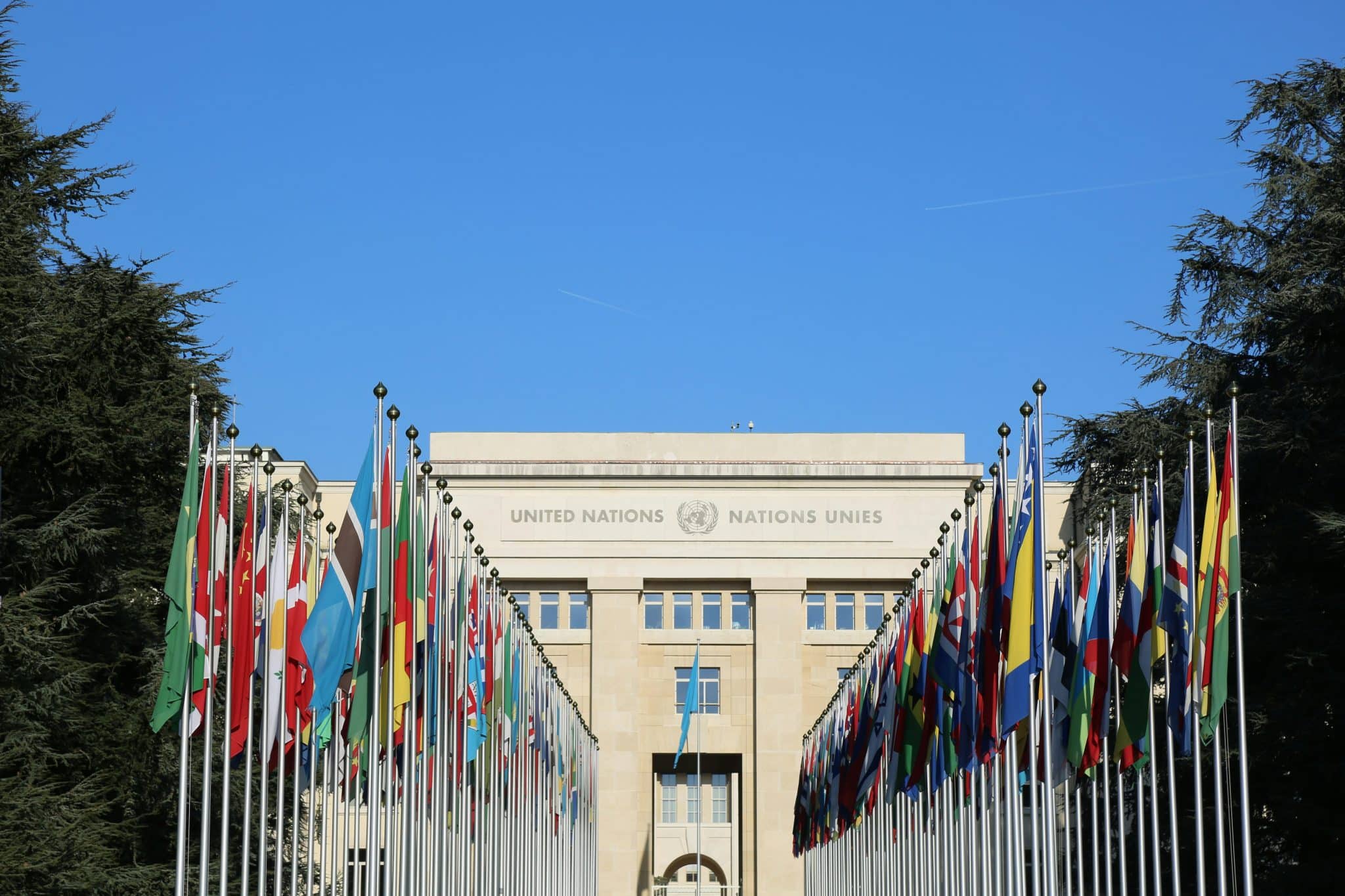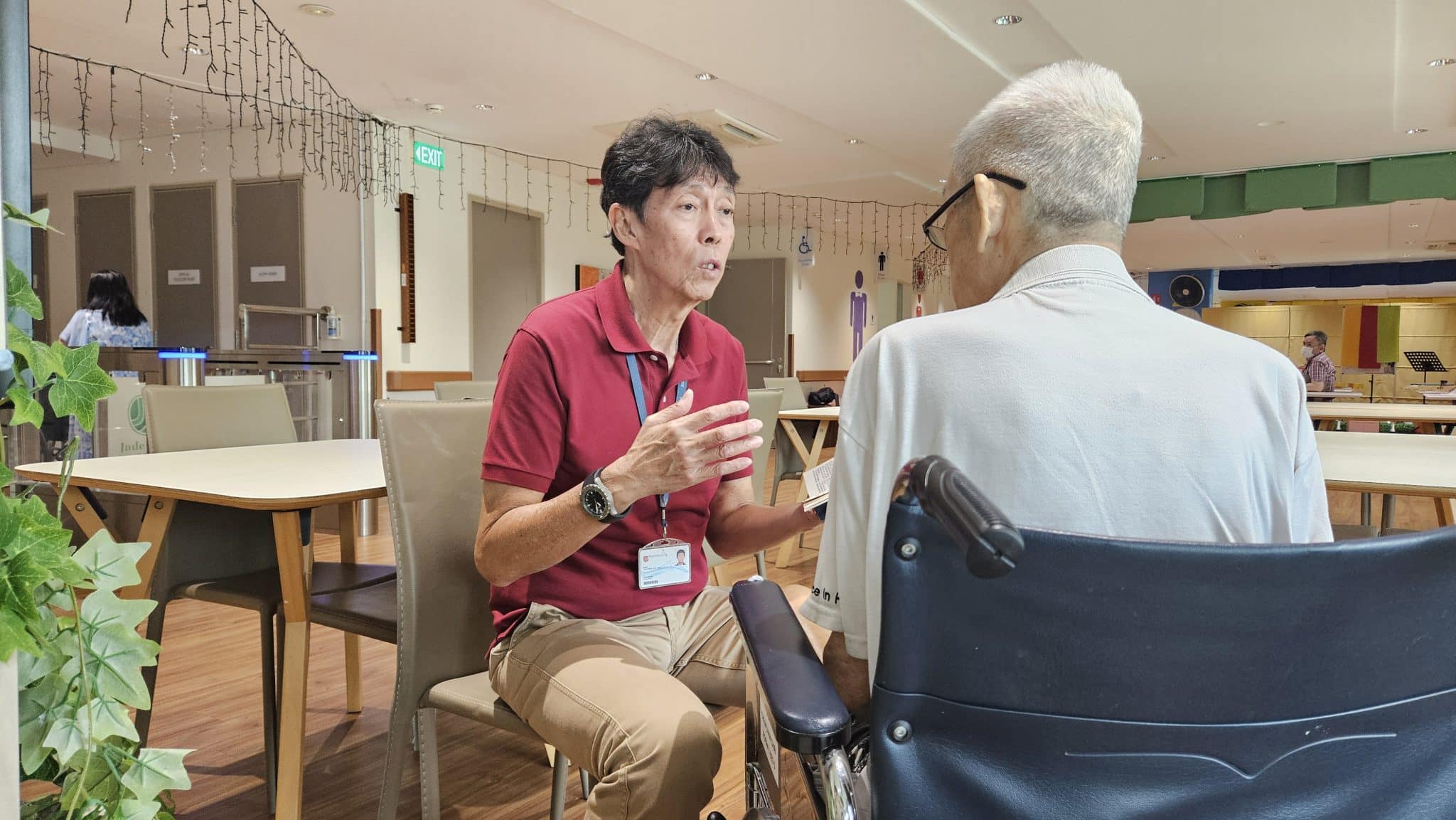How a 5-year-old’s party invite sparked an unlikely friendship between the Vicar of Baghdad and Yasser Arafat
by Geraldine Tan // November 8, 2019, 6:00 am
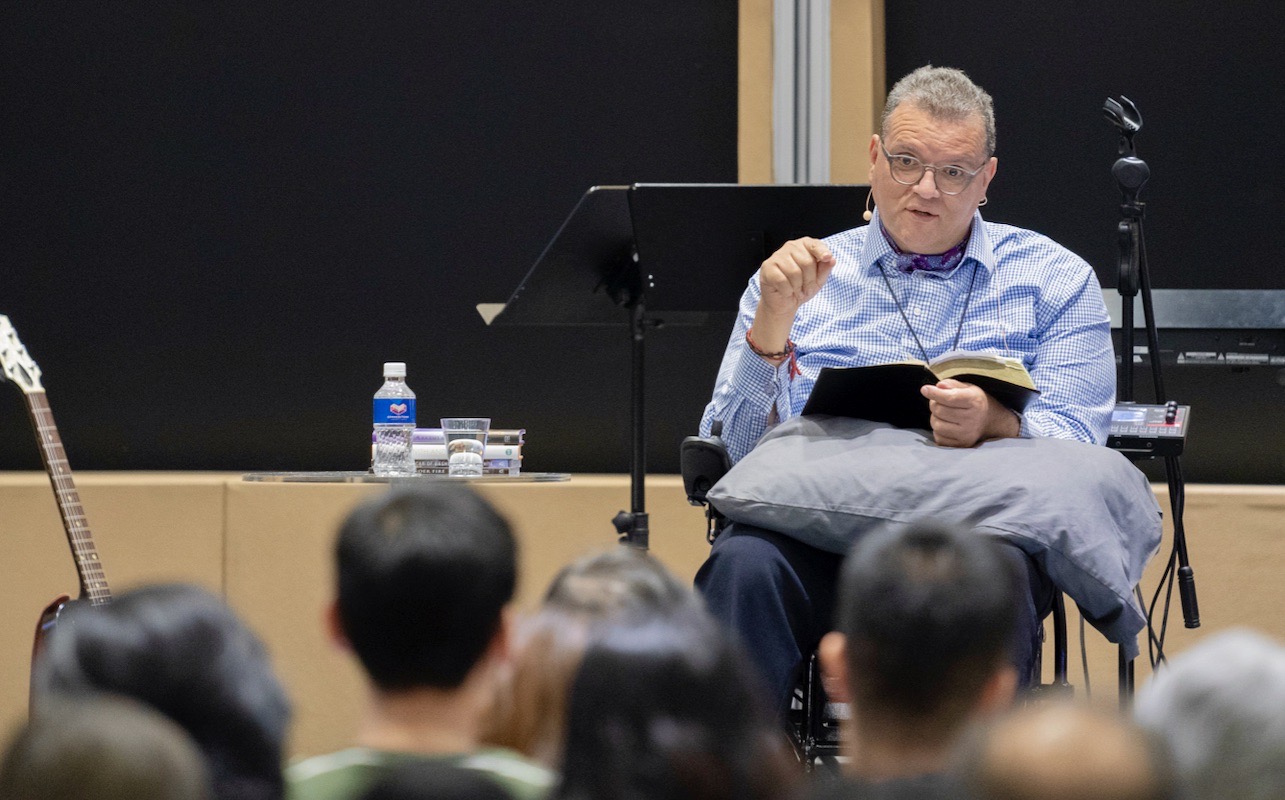
When you commit your life to Jesus, you might be persecuted, even killed. But the suffering of this present world is nothing compared to the glory that is to come, said Rev Canon Dr Andrew White, who has caught glimpses of that glory while ministering to Iraqi Christians at the height of the sectarian violence there. Photo courtesy of Kingdom Invasion.
Jesus loves me, this I know
For the Bible tells me so …
Lyrics we are all too familiar with. Yet it brought many to tears when Reverend Canon Dr Andrew White sang it at the recent Kingdom Invasion Trilogy meeting held at Max Atria.
Canon White, 55, was the vicar of St George’s Church, Baghdad – the only Anglican church in Iraq – up till November 2014 when Archbishop of Canterbury Justin Welby ordered his departure due to security concerns.
The Islamic State in Iraq and Syria (ISIS) had issued numerous death threats to him and even put a US$56 million bounty on his head in 2014 – the reason for his recall.
Trained as a medical doctor, Canon White moved to Iraq in 2003 when the church reopened following the Anglo-US invasion of Iraq and lived through the sectarian violence in the years that followed. He recalled an incident where he narrowly escaped death when a lorry loaded with explosives detonated before it could reach him.
“Renounce Jesus”
“We talk about the persecution of the saints. Well, we live with it,” Canon White, who is better known as the Vicar of Baghdad, told the 400-strong crowd on October 18.
He recounted a fateful day when one of his Iraqi parishioners rang him, distraught. “Aboona (Aramaic for father), Aboona,” the man quavered. “Lord Jesus forgive me!”
Canon White asked him what he had done wrong. The man replied: “ISIS came around. They demanded that I renounce Jesus and follow their god, or they will kill my children and me.”
“We can’t say anything against our Jesus. He lives within us!”
The father of four couldn’t bear to see his young children die, so he buckled, preserving the family’s lives. Canon White reassured the man that the Lord forgives him and still loves him. (1 John 1:9)
However, ISIS militants returned the next day and issued the same ultimatum to his children.
“We can’t say anything against our Jesus. He lives within us!” they innocently replied. They then started to sing: “Jesus loves me, this I know …”
They were killed before they could even finish the song.
“But they went to glory singing of Jesus, loving Jesus,” said Canon White, voice thick with emotion.
Father, forgive
Canon White is no stranger to death and destruction – facing it daily during his time in Iraq. He lost 176 staff and more than a thousand church members to sectarian violence.
Despite the personal pain from the losses and physical pain (he was diagnosed with multiple sclerosis in 1999), he continues peacemaking efforts in the Middle East, a work he had started as early as 1998 when he was the Canon of Coventry Cathedral and director of its department for international reconciliation.
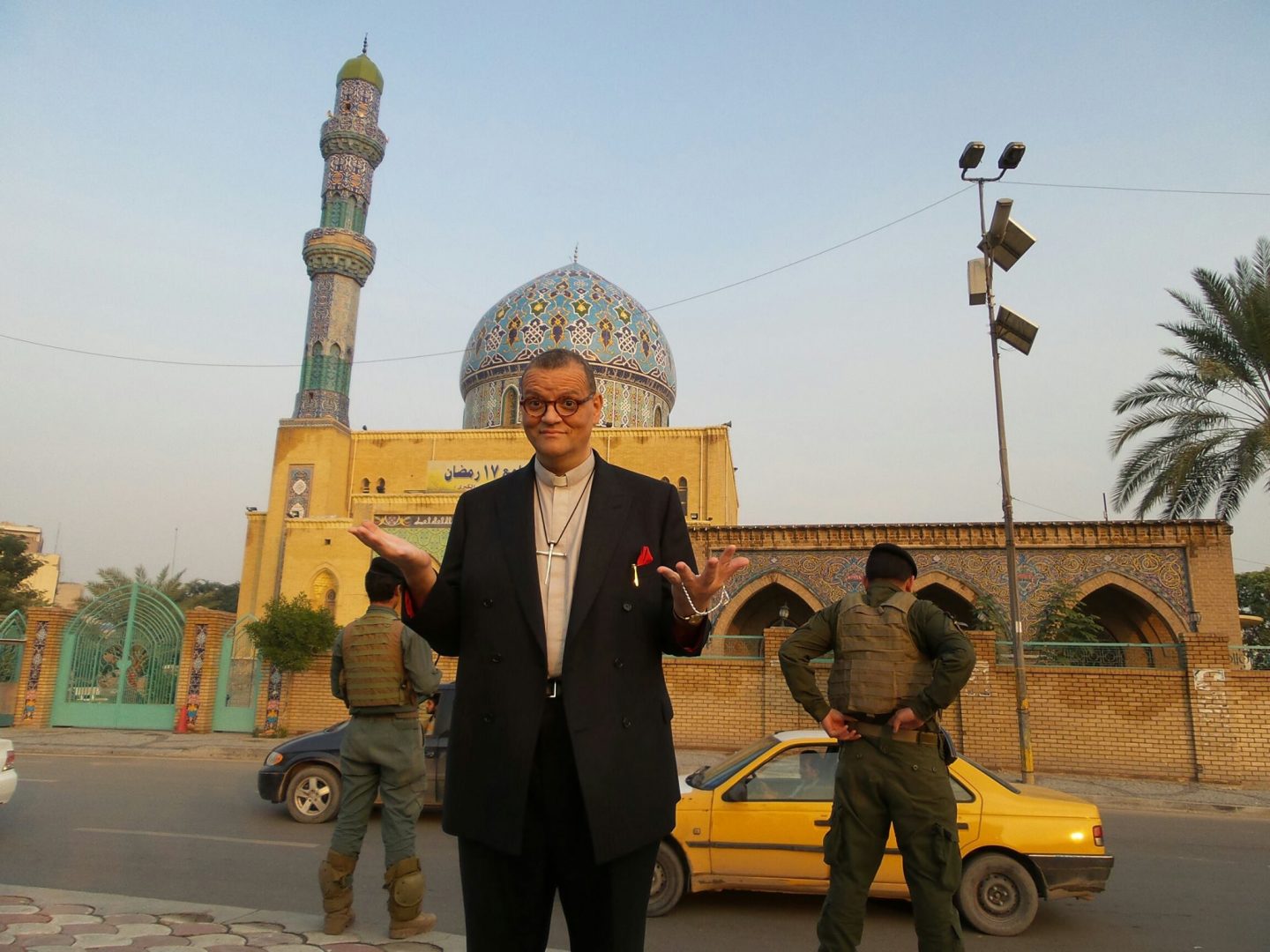
Hard as life was in the war zone, the presence of God kept Canon White going. He is pictured here in front of the historic Haydar-Khana Mosque located in Baghdad, Iraq in 2013. The same photo would later become the cover of his book, My Journey So Far. Photo from Rev Canon Dr Andrew White’s Facebook page.
The Cross of Nails that he wears around his neck serves as a reminder. The Coventry Cathedral was completely destroyed by Nazi Germany in November 14, 1940 and all that remained were three medieval nails. The nails were formed into a cross, which became the original Cross of Nails, widely seen as a symbol of peace and reconciliation.
Dick Howard, its then provost, wrote “Father forgive” on a ruined wall as a reminder that we all need to be forgiven.
“It is representative of our work in Baghdad because it is a symbol that out of death and destruction come the glory of God,” said Canon White. “As I go around my work today, I say ‘Father, forgive’.
“And one of the big challenges is how do we deal with our enemies?”
The story you haven’t heard
To Canon White, the enemy – as what the American poet Henry Wadsworth Longfellow said – is the person whose story you have not heard.
“Reconciliation always involves listening to the other’s story.”
“So fundamental to our work is actually hearing the story of the other,” he explained. To this end, he has organised countless dialogues between warring tribes and sects.
“Reconciliation is a very long journey. When you’re hearing the story of people who suffered, they are very long stories and you’ve got to do lots and lots of listening,” shared Canon White.
“Solutions are not found in quick chats, which is common these days. It always involves listening to the other’s story because when you bring them together to hear what is happening on the opposite side, that brings healing.”
Take care risk
But how do you even get enemies together so that they can listen to each other? The answer lies in love, a lesson Canon White learned from Jacob, the younger of his two sons with his wife, Caroline.
“If my son can love him, I must also.”
Daily, Jacob would pray for his mum, dad and Yasser Arafat, whom he often saw on television. This was no easy task for Canon White as he viewed Arafat, who was the president of the Palestinian National Authority up until his death in 2004, as an enemy because he loved Israel dearly.
“If my son can love him, I must also. And that was God teaching me to love those who are difficult, those who are unlovely,” he explained.
The breakthrough came in the most unexpected way – Jacob’s letter inviting Arafat to his fifth birthday party. When Canon White passed the letter to Arafat when they next met – he had been facilitating peace talks between Israel and the Palestinian Authority areas – the president cried.
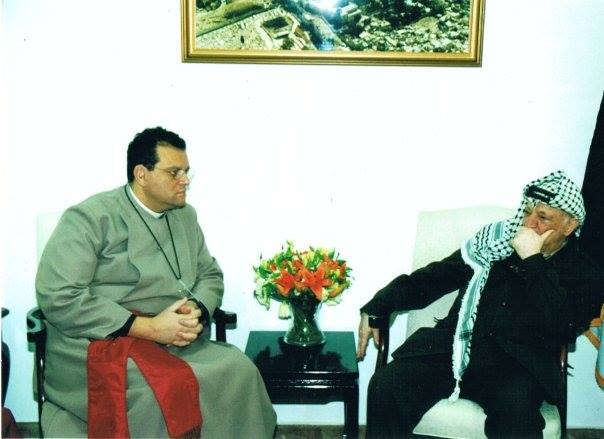
Canon White counted the late Yasser Arafat (right), president of the Palestinian National Authority, as one of his closest friends. He even conducted Arafat’s funeral in 2004. Photo from Rev Canon Dr Andrew White’s Facebook page.
“Arafat could not believe that this little boy prayed for him every day and wanted him to come for his birthday party,” shared Canon White. Arafat then took off his keffiyeh (Palestinian headscarf) and wrote on it: “To Jacob, happy birthday. From Yasser Arafat.”
Arafat and Jacob began conversing on the phone and Canon White recalled once when his little boy (who is now 20 and still has the headscarf) said to Arafat: “If I can’t come see you, can we pray together?” And Arafat said yes.
“God opens up these doors and causes enemies to become friends.”
That initial act of love from Jacob birthed a friendship that helped broker the Alexandria Declaration, a peace treaty between Muslim, Jewish and Christian leaders in Israel and Palestine.
“All of these just goes to show how God opens up these doors and causes us to work together. And causes enemies to become friends,” he said.
“Enemies becoming friends always involve taking risks. One of my former archbishops, Lord Donald Coggan, used to always say to me, ‘Don’t take care, take risks.’ Now, I say this to everybody.”
He may be a risk-taker but he is not foolhardy.
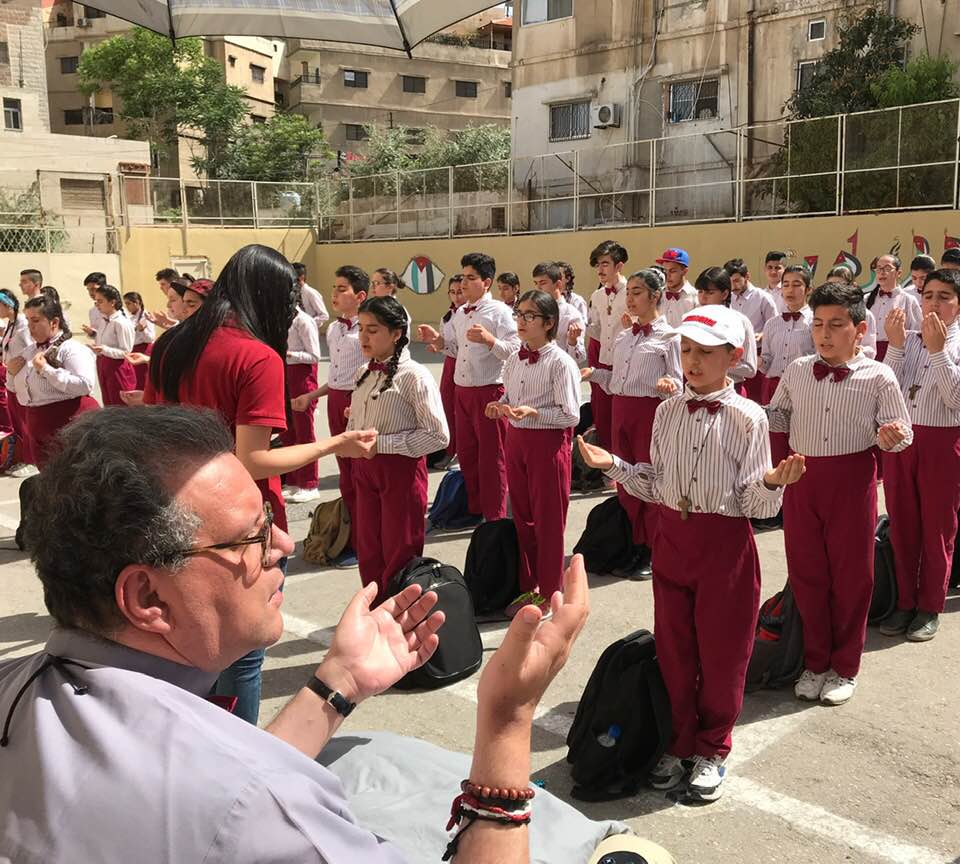
Canon White reciting the Lord’s prayer in Aramaic with students in the school he started in Jordan for displaced Iraqi children. Photo from Rev Canon Dr Andrew White’s Facebook page.
While he is unable to visit his church members as he did in Baghdad (with 35 armed soldiers, an armed tank in front of him and another behind him, and a Humvee to his left and one to his right in tow), he continues to minister to the displaced flock in Jordan. He not only ministers to them spiritually, but also physically and mentally as well, starting schools for the children and providing necessities to needy refugee families.
Finding God in the war zone
Just how did he cope with life in a war zone, living in such trauma, being kidnapped and held at gunpoint, on top of the immense loss that he has had to endure?
“Throughout my life in the war zone, not sometimes, but every time we got the young people together, we saw Jesus. So, my life has been really shaped by knowing the presence of God amongst young people.
“Not boring, sophisticated doctors like me, but little people, the people of tomorrow,” said Canon White.
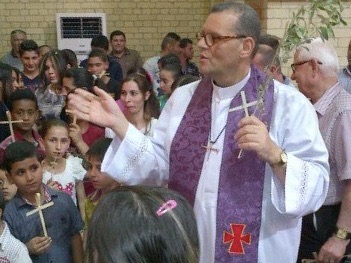
Canon White conducting Palm Sunday service in 2013 when he was still the vicar of St George’s Church, Baghdad, Iraq. Photo from Rev Canon Dr Andrew White’s Facebook page.
He narrated how the children ministered to him following news of the death of his four young friends when they refused to deny Jesus:
“The suffering of this present world is nothing compared to the glory that is to come.”
“I was crying in my room because of our children. And two of the other children came up to me and they said, ‘Daddy – they all called me daddy – you haven’t got to cry because last night when we were asleep, we both had the same dream. We saw all of them and they were in heaven dancing with Jesus.
“And after that, whenever terrible things happened, the children would come and say they see their friends dancing with Jesus in heaven.
“This is the story of our persecution, that He has overcome with victory. That in the midst of it, God’s glory will be revealed. (Romans 8:17-18)
“It is not some simple message of commit your life to Jesus and all is going to be fine. No. This story is when you commit your life to Jesus, you might be persecuted, even killed. But the suffering of this present world is nothing compared to the glory that is to come.”
Little ones to Him belong
They are weak but He is strong
– Jesus Loves Me (1860)
We are an independent, non-profit organisation that relies on the generosity of our readers, such as yourself, to continue serving the kingdom. Every dollar donated goes directly back into our editorial coverage.
Would you consider partnering with us in our kingdom work by supporting us financially, either as a one-off donation, or a recurring pledge?
Support Salt&Light